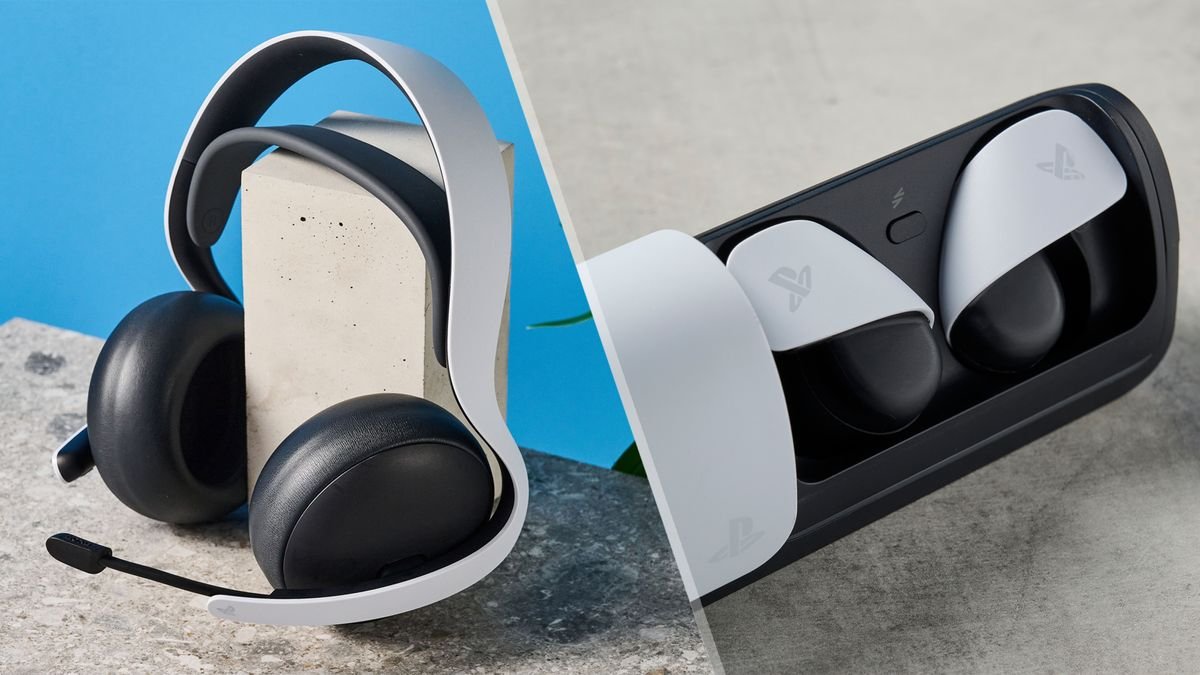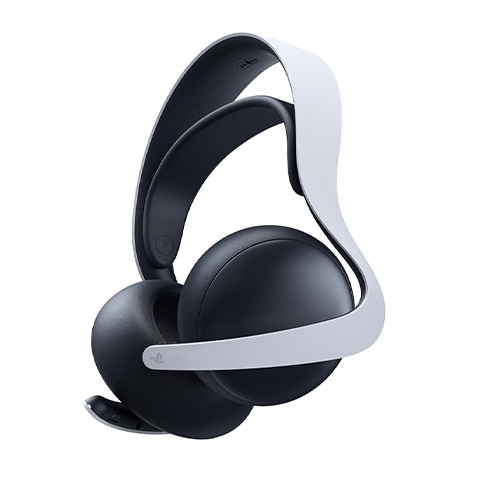
Sony PlayStation Pulse Elite
The PlayStation Pulse Elite is a great headset that will easily fit into your PS ecosystem, thanks to the classic black and white colors. This headset is very comfortable, and its long battery life means you won’t run out of juice mid-battle. It utilizes Tempest 3D Audio to create immersive soundscapes; you can customize sound profiles, too.
For
- Premium build quality
- Crisp, detailed, excellent sound
- Customizable audio profiles
- Long battery life
- Dual-point connectivity
Against
- Echoey dialogues
- Mic is okay
- Subpar earcups
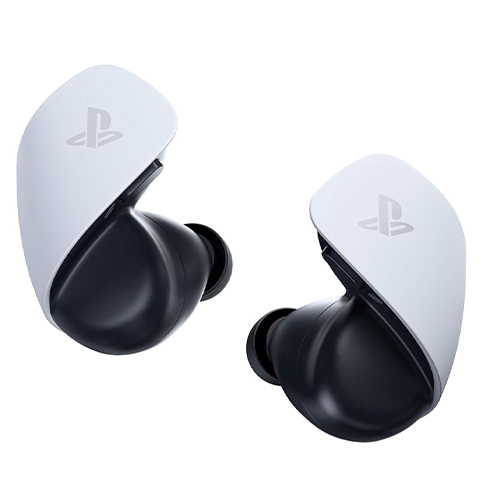
Sony PlayStation Pulse Explore
The Sony PlayStation Pulse Explore boasts immersive in-game audio thanks to the planar magnetic drivers, and the fully customizable 3D audio profiles and multipoint connectivity truly elevate your gaming experience. They’re also extremely comfortable to wear during long gaming sessions.
For
- Comfortable
- Immersive in-game audio
- Great music quality
- Customizable EQ
- Dual-point connectivity
Against
- Bulky case
- Confusing controls
- Poor battery life
I’ve played video games for as long as I can remember, so I know how important sound is. It can make or break a game, so if you want to enhance your experience, you need one of the best gaming headsets. Luckily, there are great options for every budget. But if you own a PlayStation 5 or a PlayStation Portal, you might be drawn to the Pulse line-up with its black-and-white aesthetic.
But what’s the difference between the PlayStation Pulse Elite and the Pulse Explore? One’s a headset, and the other is a pair of earbuds, yes, and $50 separate them. Is there a difference in the sound, customization capabilities and battery life? Yes and no.
In this Pulse Elite vs. Pulse Explore face-off, I’ll break down the key differences and similarities to determine the winner.
PlayStation Pulse Elite vs. PlayStation Pulse Explore: Specs compared
| Specs | PlayStation Pulse Elite | PlayStation Pulse Explore |
|---|---|---|
| Price | $149 / £129 | $199 / £199 |
| Colors | Black / white | Black / white |
| Battery life (rated) | 30 hours | 5 hours, 10 hours (charging case) |
| Connectivity | Bluetooth, Link dongle, wired | Bluetooth, Link dongle |
| Multipoint connectivity | Yes | Yes |
| Drivers | Planar magnetic | Planar magnetic |
| Frequency response | 20 Hz-20 kHz | Not specified |
| Platforms | PS5, PS Portal, macOS, Windows | PS5, PS4, PS Portal, macOS, Windows |
| Weight | 12.2 ounces | 0.48 ounces (each earbud), 2.85 ounces (charging case) |
| Dimensions | 8.38 x 6.1 x 5.07 inches | 1.25 x 1.25 x 1.25 inches (each earbud), 3.46 x 1.49 x 1.49 inches (case) |
PlayStation Pulse Elite vs. PlayStation Pulse Explore: Price
Sony’s PlayStation Pulse line-up — which also consists of the PlayStation Pulse 3D — isn’t the cheapest. The PlayStation Pulse Elite headset is available for $149 at Amazon U.S. / £129 at Amazon U.K. The PlayStation Pulse Explore earbuds are pricier at $199 at Amazon U.S. / £199 at Amazon U.K.
The good news is that you can sometimes find both for less, so it’s worth keeping an eye on Black Friday sales. For instance, we’ve seen the Pulse Elite drop to $141 at Amazon U.S., and the Pulse Explore drop to $189 at Amazon U.S.
The Pulse Elite takes this one given the overall performance and lower price tag.
Winner: Sony PlayStation Pulse Elite
PlayStation Pulse Elite vs. PlayStation Pulse Explore: Design & comfort
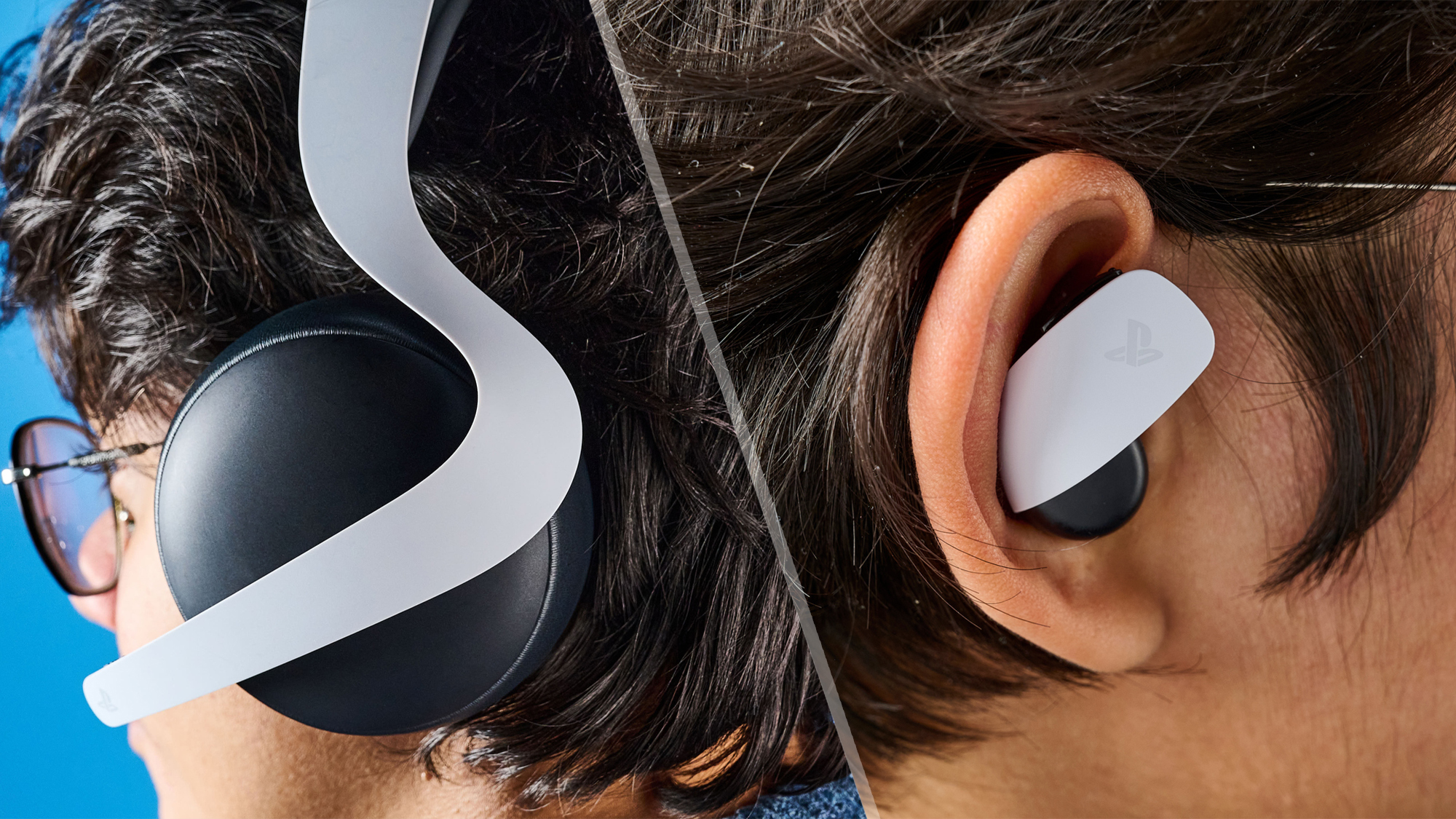
Design-wise, both the Sony PlayStation Pulse Elite and Sony PlayStation Pulse Explore are vastly different. One is a wireless headset (that can be used wired, too), and the other is a pair of wireless earbuds, so you need to ask yourself what style you want. What the two have in common is the classic black-and-white aesthetic. This means that both will fit right into your existing PS5 or PS Portal ecosystem.
The build quality is excellent too, so you can rest assured you’re getting bang for your buck. Both are made of hard plastic that never feels or looks cheap. The Pulse Elite is, of course, heavier and looks bulky when worn. It weighs 12.2 ounces, but in my testing, I didn’t feel any discomfort while wearing it for seven consecutive hours. Similarly, the Pulse Explore earbuds are very comfortable, too. Given their unique design, I was initially skeptical, but I was quickly proven wrong when I wore them for five consecutive hours without any problems.
However, the Pulse Elite doesn’t have the best earcups, so while the overall build quality is great, the earcups leave a lot to be desired. They’re made of leatherette, and the material feels fragile enough that a sharp fingernail can slice through them. This is where the Pulse Explore wins a couple of brownie points, as this issue doesn’t exist. Instead, four different tip sizes are included in the box so they can be replaced at any point.
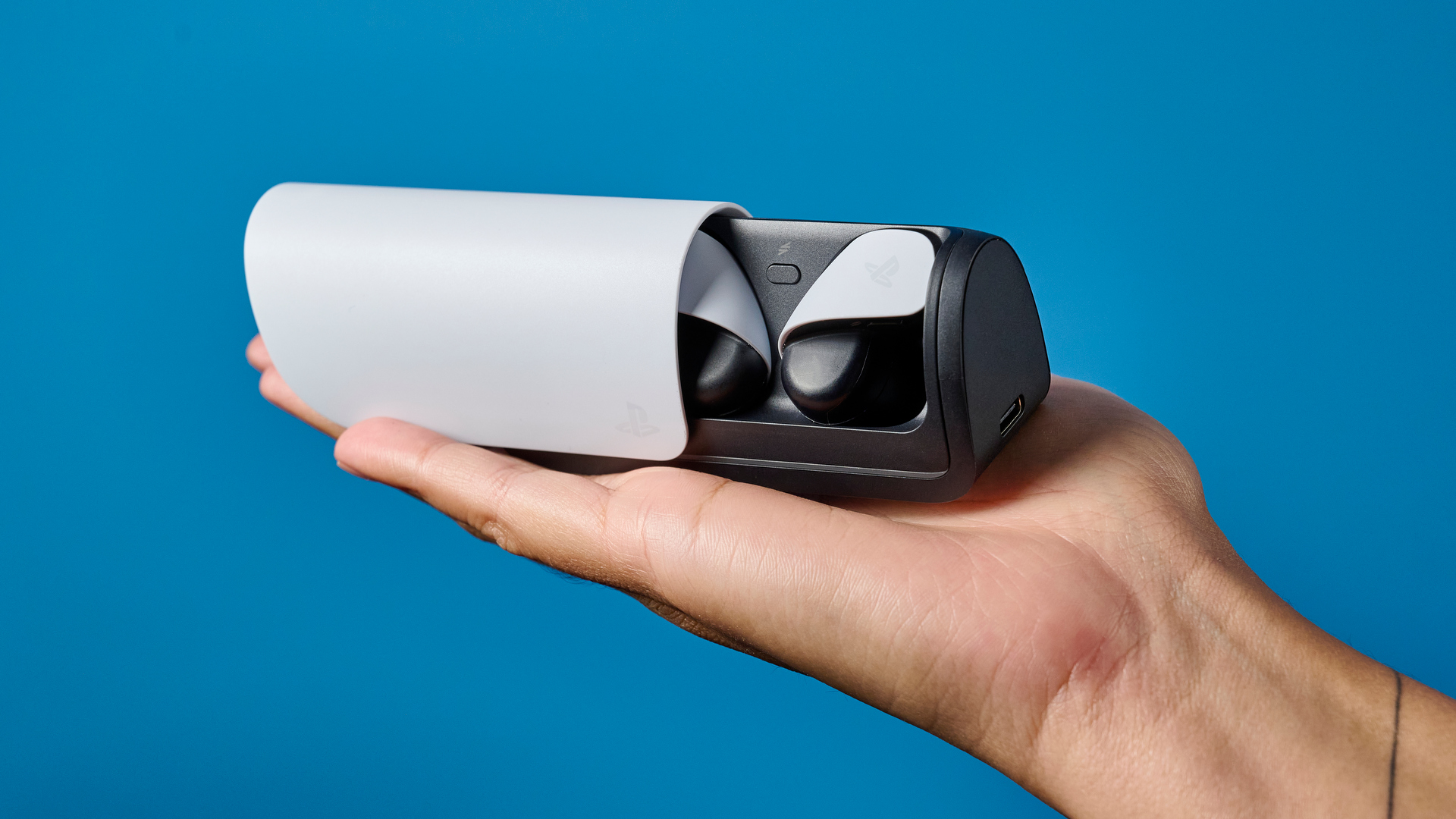
The other big difference is that the Pulse Explore sits inside a charging case. It measures 3.46 x 1.49 x 1.49 inches, so it’s quite bulky. It isn’t the best-built case either, as the sliding cover feels too plasticky and cheap and not something you’d expect at this hefty price tag.
Winner: Sony PlayStation Pulse Elite
PlayStation Pulse Elite vs. PlayStation Pulse Explore: Controls
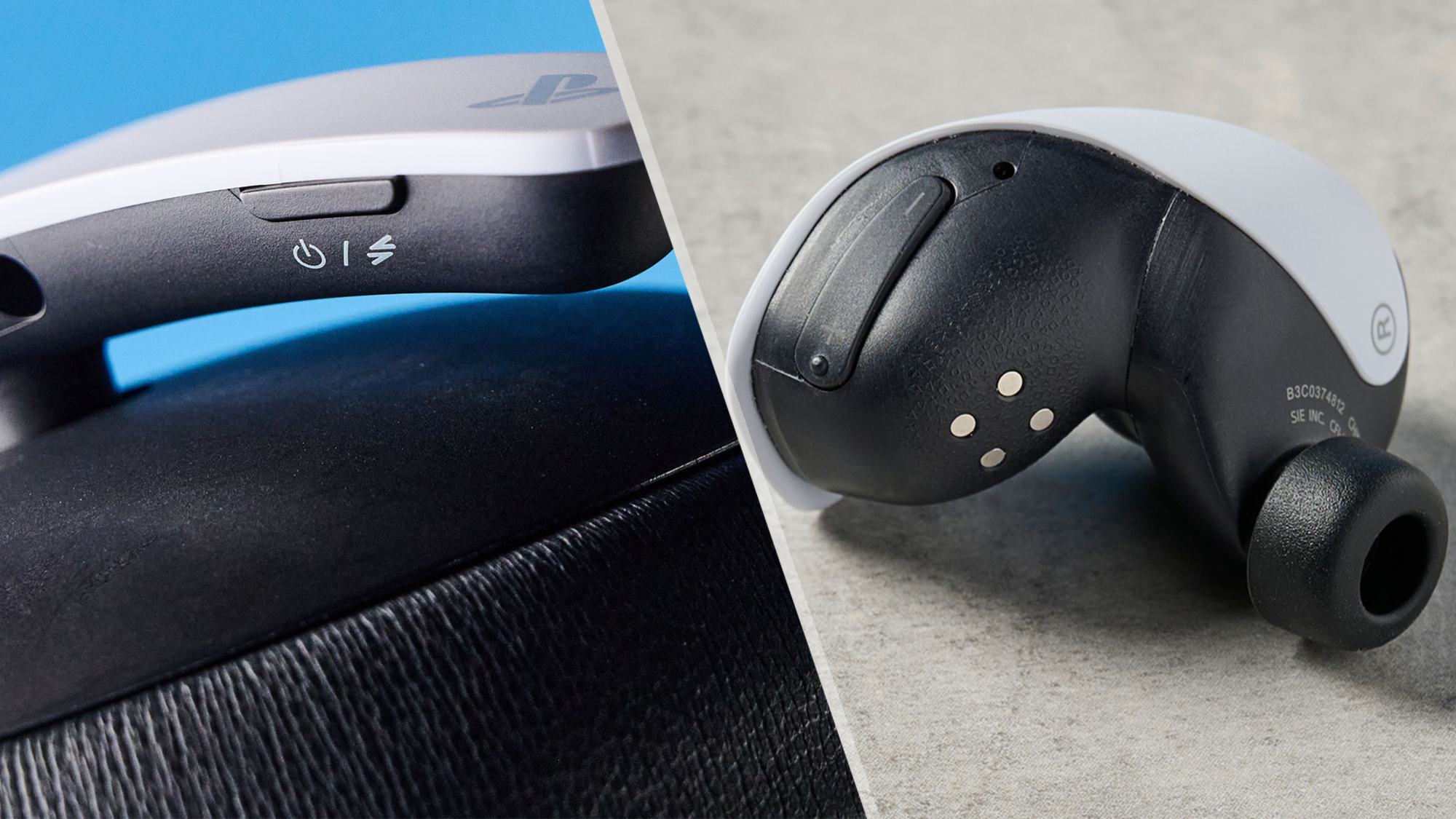
Neither the Sony PlayStation Pulse Elite nor the Sony PlayStation Pulse Explore has touch controls. While the Pulse Elite’s buttons are easy to reach and press, the same can’t be said about the Pulse Explore’s. The small form factor and unique design contribute towards this. For example, the volume controls are on the top of each earbud, and it’s a pain trying to press them when they are in your ears.
The bottom of each bud hosts a Link button, which toggles the connection between other Link-enabled devices. This button, again, is difficult to access. To change either the volume or the device, you’ll have to remove the earbud in most cases.
On the other hand, controlling the Pulse Elite is a piece of cake, so the Pulse Elite wins here.
Winner: Sony PlayStation Pulse Elite
PlayStation Pulse Elite vs. PlayStation Pulse Explore: Sound quality
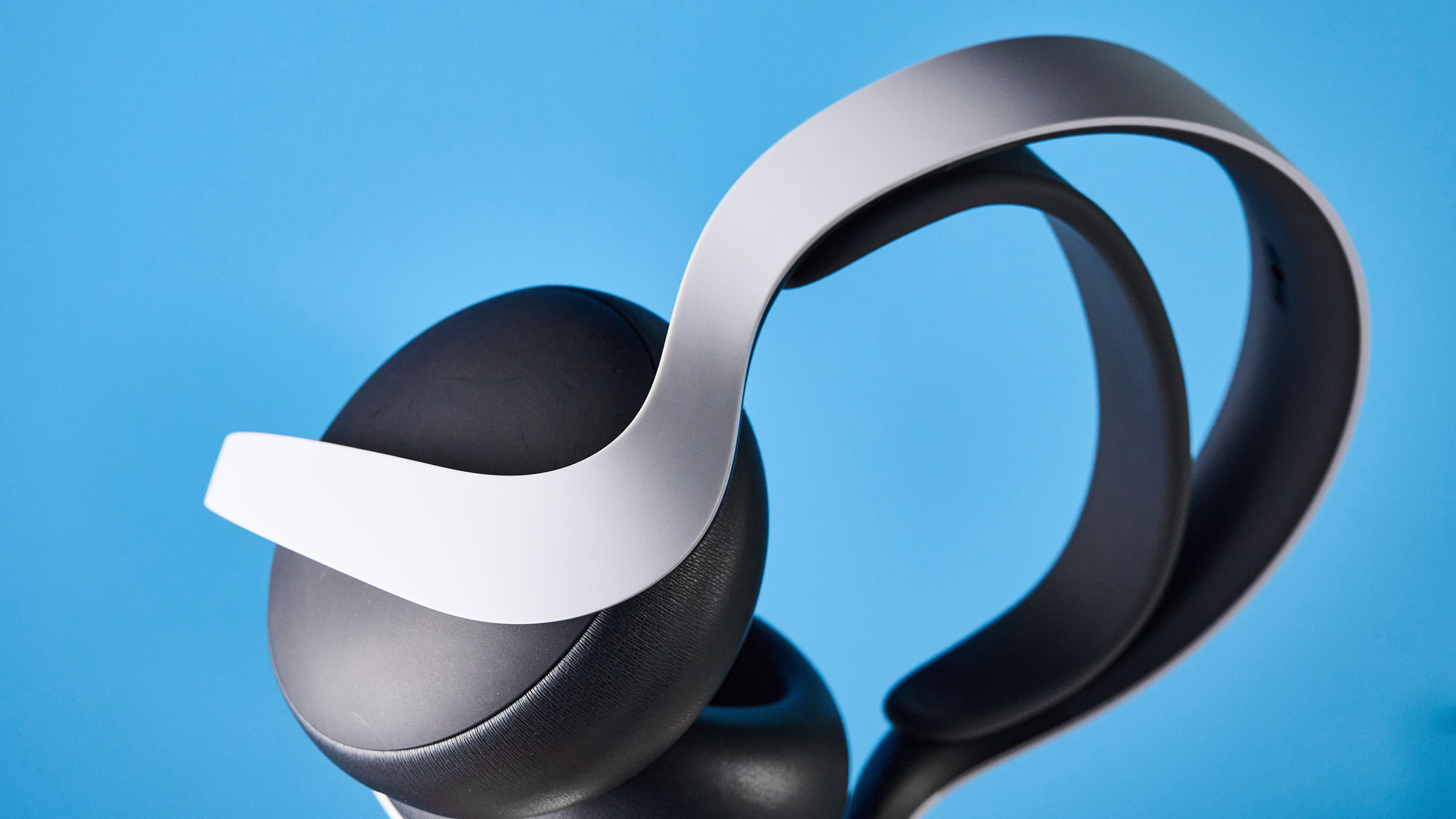
What good is a headset if it doesn’t sound fantastic? The good news is that the Sony PlayStation Pulse Elite and the Sony PlayStation Pulse Explore sound amazing as they’re equipped with planar magnetic drivers, which make your games much more immersive. The Pulse Elite goes a step further by utilizing PlayStation’s Tempest 3D Audio — it basically uses a re-engineered AMD graphics chip to process audio from hundreds of in-game sound sources. It’s like spatial audio but better.
To test both, I played Ghost of Tsushima, Baldur’s Gate 3, EA Sports FC 24, Alan Wake 2, Final Fantasy XV, NFS Heat, and Spider-Man 2 on my PS5. Open-world games sound phenomenal through the Pulse Elite and the Pulse Explore, as spatial audio lets you hear the character walking on grass or wading through water. You’ll also notice the spatial audio with spoken dialogues, as the direction of the audio changes according to the direction your character is facing. Battles sound much more immersive, too. You can clearly hear an arrow leaving your bow and the slashing action of your sword.
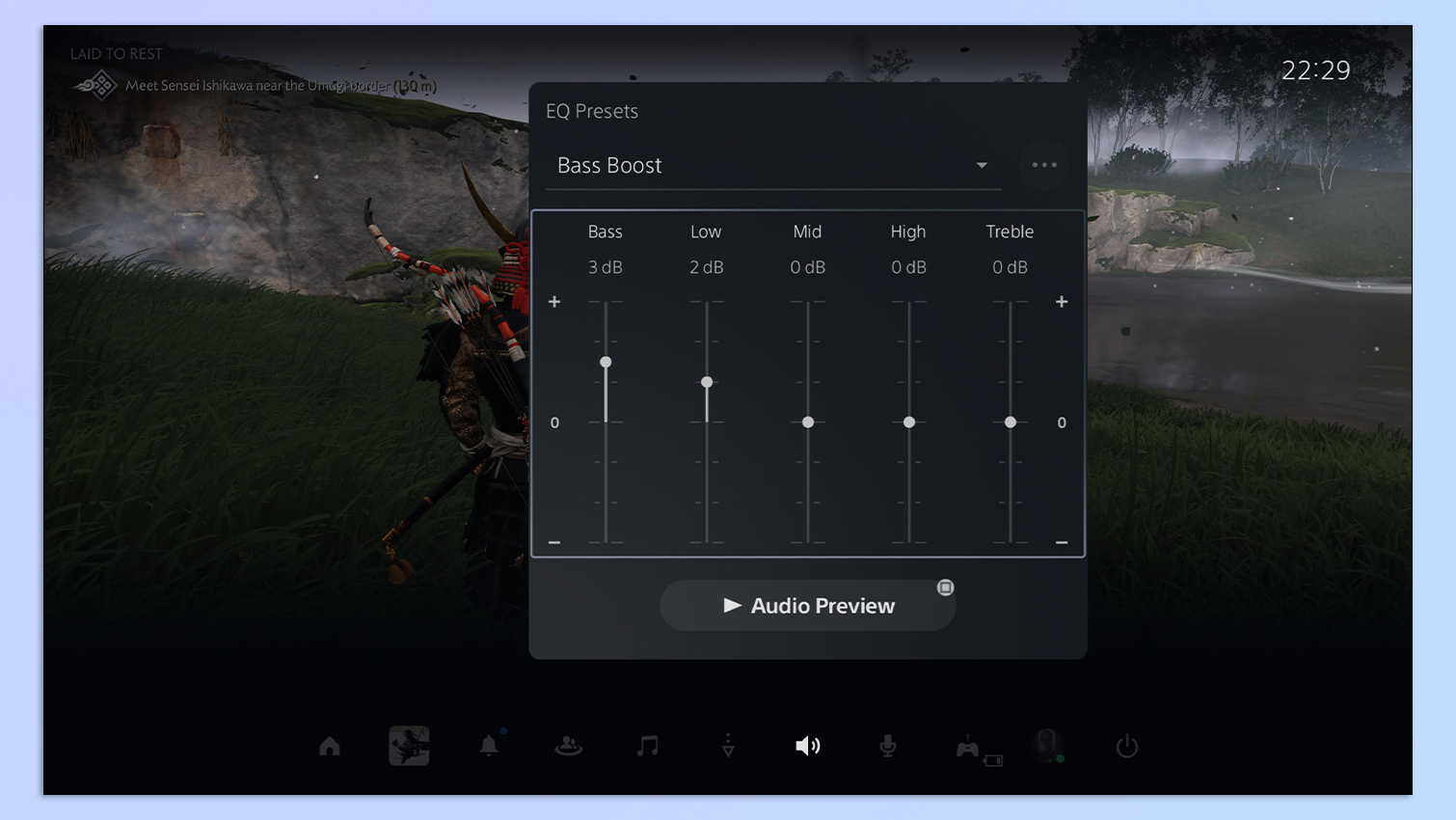
Both the Pulse Elite and the Pulse Explore have fully customizable audio profiles. Think of this as customizing the EQ on a speaker or a pair of regular earbuds. You can adjust the bass, lows, mid, highs and treble, and you can even listen to a preview before finalizing. There are also a few EQ presets to choose from, such as standard, bass boost, and shooter, if you can’t be bothered by tinkering the levels.
However, the Pulse Explore one-ups the Pulse Elite regarding how dialogues sound. Through the Pulse Elite, spoken dialogues sound like they echo in games like Ghost of Tsushima and Baldur’s Gate 3. They don’t feel true to life and might ruin your immersion. When I played EA Sports FC 24, the commentators’ voices sounded tinny too. Thankfully, this isn’t the case with the Pulse Explore.
Both are brilliant in their own right, so in terms of sound quality, they are very close.
Winner: Tie
PlayStation Pulse Elite vs. PlayStation Pulse Explore: Mic quality
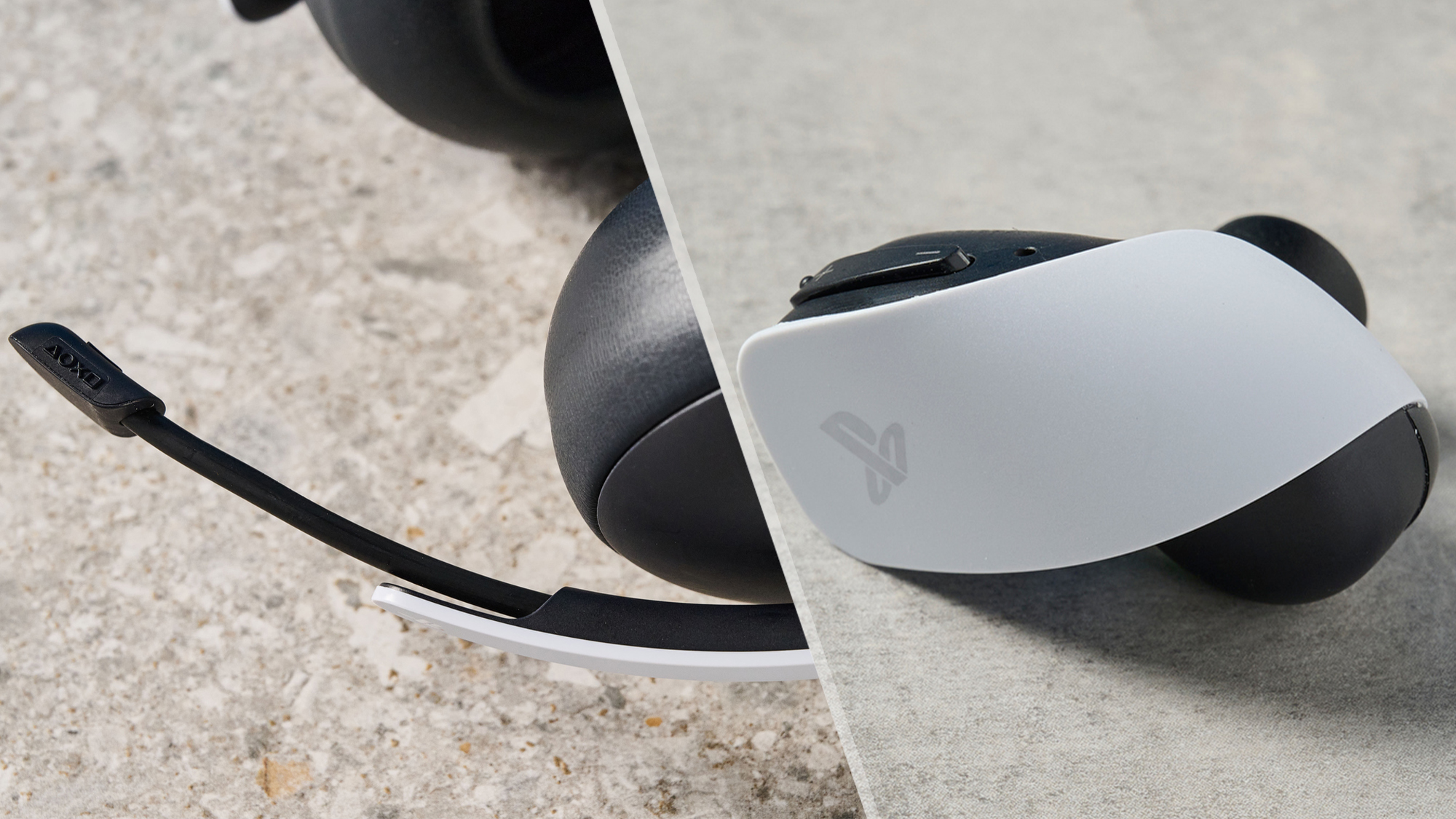
If you’re gaming online, you need a headset with a good microphone. This is where the Sony PlayStation Pulse Explore comes out on top. The earbuds are equipped with two hidden mics with AI-enhanced noise rejection, and in my testing, I sounded clear.
On the flip side, the Sony PlayStation Pulse Elite struggles. It has a retractable microphone that can be tucked away when not in use — nifty. But the voice sounds muffed on the other end, and for $149, you’d expect better. Compared to its predecessor, the Pulse 3D, there isn’t much improvement in this area.
Winner: Sony PlayStation Pulse Explore
PlayStation Pulse Elite vs. PlayStation Pulse Explore: Battery life
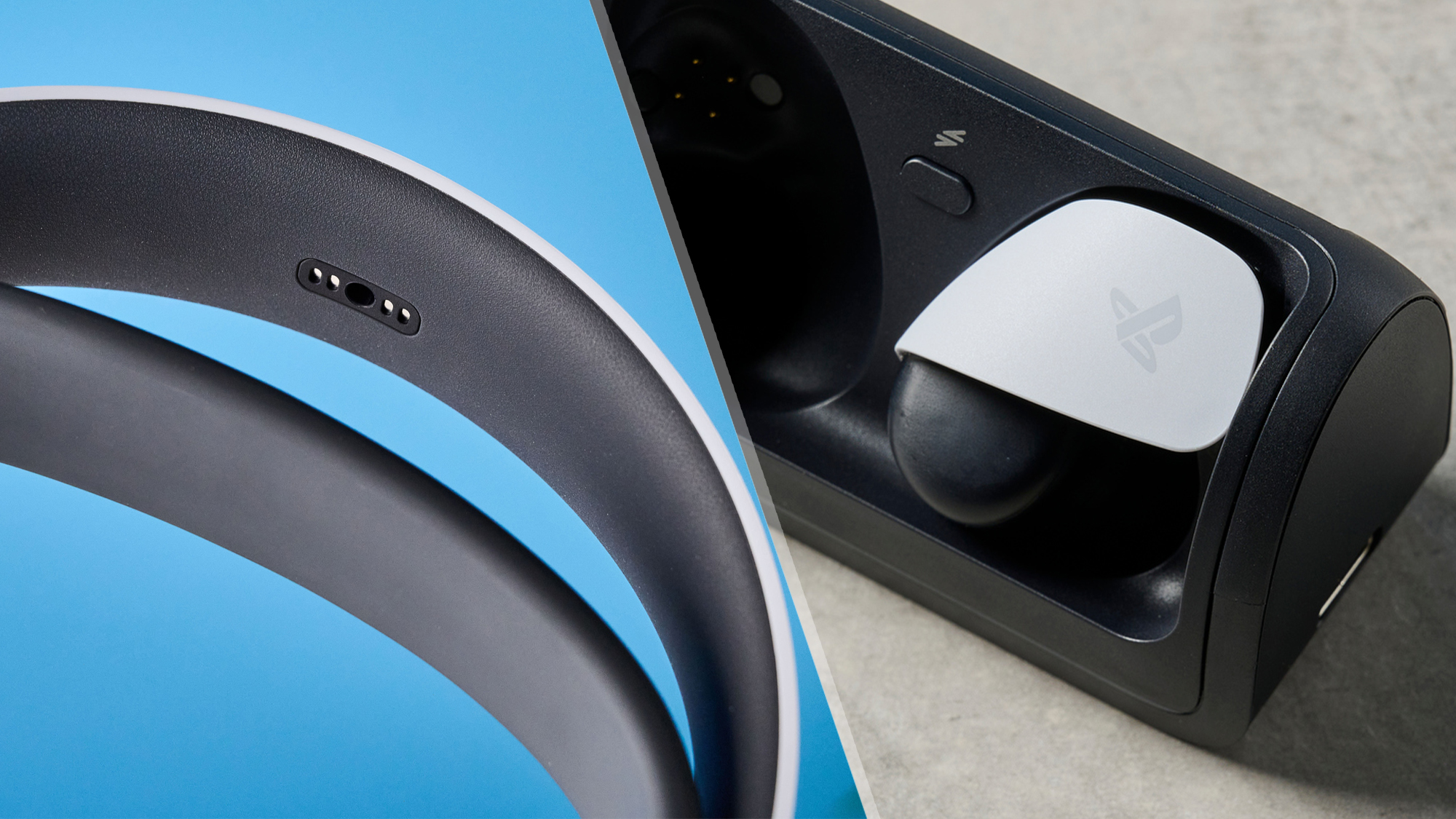
Compared to the Sony PlayStation Pulse Elite, the Sony PlayStation Pulse Explore’s battery life pales in comparison. On a single charge, the Pulse Elite gives you 30 hours — and it has a handy quick charge feature, which means you can charge the headset for 10 minutes and squeeze more than two hours out of it. The Pulse Elite’s headband also has a charging port located on its underside, and it comes with a wall-mountable charging hanger.
Meanwhile, the Pulse Explore earbuds last just five hours, and the charging case provides an additional 10 hours. The Pulse Explore’s case doesn’t support wireless charging either.
Winner: Sony PlayStation Pulse Elite
PlayStation Pulse Elite vs. PlayStation Pulse Explore: Verdict
| Header Cell – Column 0 | Sony PlayStation Pulse Elite | Sony PlayStation Pulse Explore |
|---|---|---|
| Price and value (5) | 5 | 2 |
| Design & build (15) | 13 | 12 |
| Controls (10) | 10 | 5 |
| Sound quality (25) | 22 | 25 |
| Customization (20) | 20 | 20 |
| Mic quality (10) | 5 | 9 |
| Connectivity (5) | 5 | 5 |
| Battery life (10) | 10 | 2 |
| Total score (100) | 90 | 80 |
Ultimately, the Sony PlayStation Pulse Elite wins by a very narrow margin. Its user-friendliness in terms of controls and lower price play a big part in this, as does the massive battery life. The mic quality and quality of the earcups could be better, so there’s room for improvement.
The Sony PlayStation Pulse Elite are excellent in their own right, but a confusing control scheme, poor battery life and the hefty price tag massively let them down. But if you want a pair of earbuds and not a headset — and have nearly $200 to spare — this could be a great addition to your PlayStation ecosystem.

